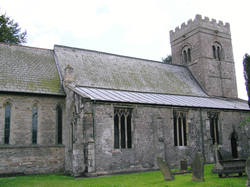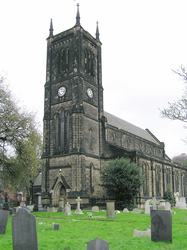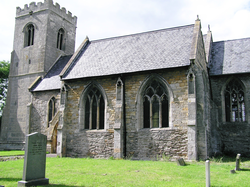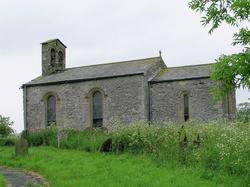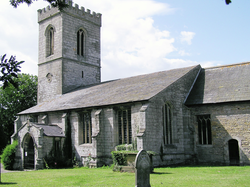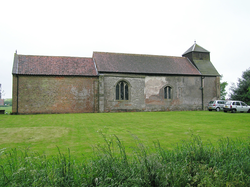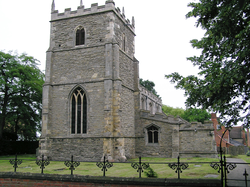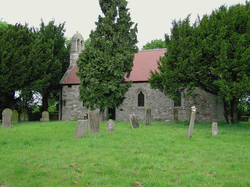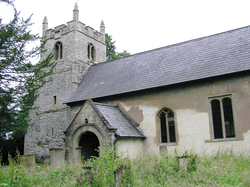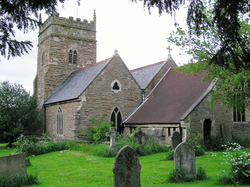
The Corpus of ROMANESQUE SCULPTURE in Britain & Ireland
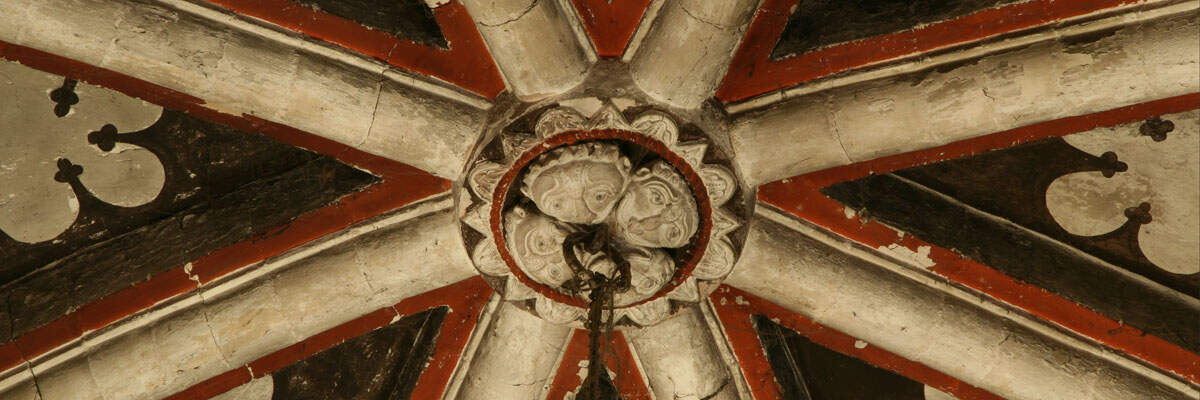
Southwell and Nottingham (now)
Parish church
The church consists of chancel, nave, aisles, S porch and W tower. The Romanesque elements recorded here are the S doorway, portions of the tower and possibly the font. The Southwell and Nottingham Church History Project notes an interesting fragment of a tomb effigy in the vestry, which we hope to record later.
Parish church
Since 1877 Lenton has been a part of the City of Nottingham, but in the 11thc it was a village to the W, between Nottingham and Wollaton. New Lenton was built on farmland to the W of Lenton to accommodate the expansion of both the village and the city, especially of the lacemaking industry. The church of the Holy Trinity was built in 1842 by Henry Isaac Stevens, and consists of a nave with aisles, chancel and W tower. It houses the font from Lenton Priory; one of the finest pieces of Romanesque sculpture in the county.
Parish church
North Leverton with Habblesthorpe is a village in the Bassetlaw district of NE Nottinghamshire, 5 miles E of Retford. The church consists of a chancel, nave, S aisle and S porch. Though some Norman masonry remains on the N side, the church is principally of the 14thc (the chancel windows have particularly fine 14thc tracery). The W tower is 15thc. The only Romanesque feature is the S doorway.
Parish church, redundant
Littleborough is a hamlet in Nottinghamshire, 8 miles E of Retford, near to the River Trent which forms the Lincolnshire border. The church consists of an aisleless nave and chancel with a vestry on the N side. The fabric of the church is largely Romanesque and there are portions of herringbone masonary, for instance in the vestry. The church was restored in 1900. It was vested in the Churches Conservation Trust in 1993. The Romanesque features recorded here are the plain W doorway, the chancel arch and the font.
Parish church
Rampton is a village in the Bassetlaw district of NE Nottinghamshire, close to the River Trent which forms the Lincolnshire border and 6 miles E of Retford. The church consists of chancel, nave, N and S aisles, S porch and W tower. The W tower and nave are 14thc., and the S porch and windows in the tower and the chancel are Perpendicular. The N nave arcade is c.1300 whilst the S arcade is 15thc. The church was renovated and the chancel restored in 1894. The only Romanesque element is the font.
Parish church
West Markham,or Markham Clinton is a village in the Bassetlaw district of the county, 10 miles SE of Worksop. The church is to the N of the village centre. It is built of a mixture of red brick, coursed rubble, ashlar, render and some timber framing, and consists of an aisleless nave and chancel, with a W bell turret.
Portions of the fabric of the church are 11thc and 12thc, and there is a portion of exposed herringbone masonry in the S wall of the nave. The windows are of 14th century and later date. An extensive restoration was carried out 1930-45. The Romanesque features are the 2 S doorways and the font together with two loose pieces of sculpture.
To the S of the church is the Milton Mausoleum,
Parish church
South Scarle is a village in the Newark and Sherwood district of E Nottinghamshire, 20 miles E of Mansfield close to the border with Lincolnshire. Apart from the church the village has a post office and a community centre. St Helen's consists of a chancel, clerestoried nave, aisles, S porch and W tower (the N aisle has been partitioned off to form a separate room). There may have been a Saxon church on the site; by c. 1130 there was certainly structure consisting of the present nave and there is documentary evidence attesting to a church on the site in 1147. The W tower, S aisle, chancel and extension to the N aisle were added in the 13thc. Last to be built was the S porch in the 14th or 15thc. In the 14thc. the tower was rebuilt. Extensive restoration work was carried out in 1871 and 1898. It was during the earlier period of restoration in 1871 that the S arcade was cleaned and redressed. Only the N arcade is Romanesque, but it is a fine example of late 12thc work.
Parish church
West Drayton is a village in the Bassetlaw district of the county, 4 miles S of Retford. The parish church consists of nave and chancel under a single roof with a 19thc N vestry, and a double bell cote on the W gable. It is built of coursed rubble and ashlar with some render. Features of 12thc and 15thc work are visible but the church was largely rebuilt in 1874. The only element of Romanesque sculpture is the S doorway.
Parish church
Winkburn is a village in the Newark and Sherwood district of the county, 6 miles NW of Newark. The church is of dressed coursed rubble, rendered except for the tower. It consists of chancel, nave, S porch and W tower. The doorway in the S porch, the openings in the tower and the tower arch are Romanesque. The fabric of the church appears to be largely 11th/12thc.. An inscription on the tower tells of a restoration in 1632. There was a further restoration in 1996.
Parish church
Wellow is a small village in the Newark and Sherwood district of central Nottinghamshire, 11 miles NW of Newark. The church is in the village centre, and consists of a chancel, with S vestry, nave with S aisle and N porch and a tower in the W bay of the S aisle. It is constructed of coursed stone with ashlar dressings and was restored and the chancel replaced by Ewan Christian in 1878-79. Further restoration was carried out in 1968-69. The Romanesque features are the tower arch and a disused font.
